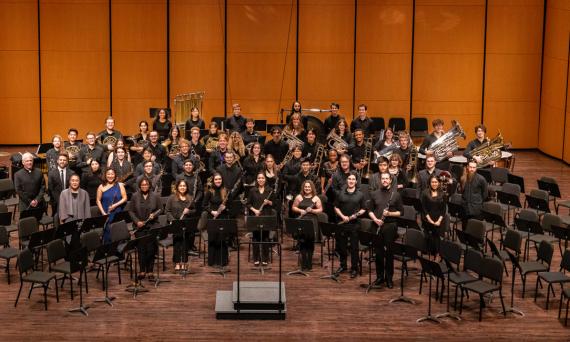The UW WInd Ensemble (Timothy Salzman, director) performs music prepared for the group's upcoming tour of South Korea. Program includes George Gershwin: Rhapsody in Blue (Robin, McCabe, piano); Franz Doppler: Andante et Rondo (Donna Shin and Grace Jun, flutes), and others. WIth Eun Ju Vivianna Oh, soprano, and graduate conductors Shaun Day, Roger Wu Fu, and David Stewart.
Program
American Overture – Joseph Wilcox Jenkins (b. 1973)
Shaun Day, conductor
The Heart of the Morn – A Tribute to the Beauty of Korea (1987) – H. Owen Reed (1910-2014)
Eun Ju Vivianna Oh, soprano / lyricist
Roger Wu Fu, conductor
Variations on a Korean Folk Song (1967) – John Barnes Chance (1932-1972)
David Stewart, conductor
Rhapsody in Blue (1924) – George Gershwin (1898-1837)
Robin McCabe, piano
- intermission -
Andante et Rondo (1870) – Franz Doppler (1821-1883)/transcr. T. Salzman
Donna Shin and Grace Jun, flutes
Symphony No. 4 (1993) – David Maslanka (1943-2017)
Program Notes
American Overture for Band was composed for the United States Army Field Band while the composer was on the arranging staff for the group. The instrumentation of this work is based on the players in the Field Band. In 2003, at the request of the American Bandmaster's Association, a full score was developed by the composer to correct the previous versions of the work. An orchestral version of the work, done by Derry Wilson Ochoa, has been performed by the Indianapolis Symphony and Nashville Symphony. The work was dedicated to the Army Field Band's conductor, Chester E. Whiting. It was written in a neomodal style, being flavored strongly with both Lydian and Mixolydian modes. Its musical architecture is a very free adaptation of sonata form. The musical material borders on the folk tune idiom although there are no direct quotes from any folk tunes. The work calls for near-virtuoso playing by several sections, especially the French horns, and is a favorite of advanced high school and university bands. Although American Overture was Joseph Wilcox Jenkins’ first band piece, it remains his most successful work and, in his words, he is "hard-pressed to duplicate its success."
John Barnes Chance began composing while still a high school student as a percussionist in his school band and orchestra. After college Chance played with the Austin Symphony Orchestra, and also performed with the Fourth U.S. Army Band in San Antonio and the Eighth U.S. Army Band in Korea. Throughout his short career, Chance composed for band, orchestra, chorus, chamber groups and solo instruments. Variations on a Korean Folk Song is based upon a folk tune that the composer learned while serving the U.S. Army in Seoul, Korea. The tune is known as Arrirang, a song of love and heartbreak that can be found in many variations, with an origin that may date back 1,000 years.
Owen Reed retired in 1976 from Michigan State University after 35 years as a composition faculty member. Several outstanding composers of wind band music were former students of his and his published compositions include a variety of works for orchestra, band, voices, opera, and chamber music, plus eight books on music theory and composition. Of this evening’s work our soloist writes:
“As the soloist for H. Owen Reed's enchanting piece The Heart of the Morn, I am honored to present a rendition that bridges cultures and generations. It features newly composed Korean lyrics, a heartfelt homage to the natural beauty of Korea. The inspiration for these lyrics comes from a deeply personal source – my mother, Ms. Jung Ja So. At 77 years old, residing near the picturesque Chungju, surrounded by majestic mountains and serene lakes, my mother embodies the spirit and resilience of Korea. A talented singer and poet in her own right, she was the natural choice to breathe new life into this composition. Though not fluent in English, her intuitive connection to music allowed her to craft lyrics that capture the essence of Korea's splendor by immersing herself in the original song's melody. This rendition is not just a musical piece; it's a tribute to dreams deferred and the unspoken sacrifices of a generation. My mother, who always harbored aspirations of being a singer, set aside her dreams to dedicate her life to raising me and my siblings. Now intertwined with Reed's music, her words are a realization of her artistic dreams and a testament to her enduring love and sacrifice. As I perform, I carry not only the weight of my mother's unfulfilled aspirations but also the beauty of her spirit and the strength of her character. This performance is a celebration of her, the stunning landscapes of Korea, and the universal language of music that connects us all. May this fusion of Western composition and Korean poetry serve as a bridge between cultures, resonating with the golden beauty of both Michigan mornings and Korean landscapes as we celebrate the universal power of music to transcend barriers and touch hearts.
Korean Lyrics
산 좋고 물 있어 아름다운 곳
가랑비 춤추는 곳
떨어지는 빗줄기
운무와 같으니
삻에 찌든 여정 뒤로 하고 떠난길
월악산 내 작은 빗줄기
산좋고 물있어 아름다운 곳
가랑비 춤추는 곳
하늘에 펼쳐진 이 작은 빗줄기
내 사랑 내 노래 채우고 채워서
월악산 저너머 보내리
English Translation:
In a place where the mountains are beautiful and the waters flow,
Where the drizzle dances,
The falling raindrops,
Like a mist,
Leaving behind a life stained with hardships, embarking on a journey,
My little stream of rain in Mt. Woraksan.
In a place where the mountains are beautiful and the waters flow,
Where the drizzle dances,
This small stream of rain spread across the sky,
Filling and overflowing with my love, my song,
I will send it beyond Mt. Woraksan.
(Korean Lyrics by Ms. Jung Ja So)
Program note by Eun Ju Vivianna Oh
Rhapsody in Blue was commissioned in January of 1924 by Paul Whiteman, the best-known American bandleader at the time, for his concert titled, ‘An Experiment in Modern Music’, with the goal of informing the public audience to the importance and influence of jazz. It was premiered on February 12, 1924 at the Aeolian Theater in New York with Gershwin as the soloist and was orchestrated by Ferde Grofé. The work was entitled by composer George Gershwin’s brother Ira Gershwin who was inspired by the abstract names of James Abbot McNeill Whistler’s paintings such as Arrangement in Gray and Black. This curious title piqued the interest of the Gershwin brothers and they then created a musically equivalent title with the word “blue” suggesting “the Blues” and in addition, jazz.
Originally from Lviv, Ukraine, Franz Doppler was a central figure in developing national Hungarian music and is most famous for his works for flute. In 1853, Doppler, his younger brother, Karl, and Ferenc Erkel were all involved in establishing the first Hungarian symphony orchestra. Andante et Rondo is no exception relative to the Hungarian influence present in many of Doppler’s works. The first movement consists of traditional romantic lyricism while the second movement is a jaunty, light-hearted rondo.
David Maslanka was an American composer of Polish descent who wrote for a variety of genres, including works for choir, wind ensemble, chamber music and symphony orchestra. Best known for his wind ensemble compositions, Maslanka published nearly 130 pieces for that genre, including 8 symphonies over 15 and a full Mass. His compositional style is rhythmically intense, highly tonal and melodically oriented. His compositions have been performed throughout the world. The roots of Symphony No. 4 are many. The hymn tune Old Hundred, several other hymn tunes (the Bach chorales Only Trust in God to Guide You and Christ Who Makes Us Holy), and original melodies which are hymn-like in nature, form the backbone of Symphony No. 4.
UNIVERSITY OF WASHINGTON WIND ENSEMBLE
Timothy Salzman, director FLUTE OBOE BASSOON CLARINET BASS CLARINET SAXOPHONE TRUMPET HORN TROMBONE EUPHONIUM TUBA BASS PERCUSSION PIANO HARP *principal |
Biographies
Soprano Eun Ju Vivianna Oh is a Korean-American soprano whose journey through the music world has been filled with adventure and accomplishment. As a recording artist, music director, teacher, and mother of two beautiful daughters, she has embraced a multi-faceted career while steadfastly pursuing her passion for becoming an opera singer. Now, she is re-energizing her lifelong dream by pursuing a DMA (Doctor of Musical Arts) in Voice Performance. Her musical education began with piano lessons, and at the age of seventeen, she added singing under the tutelage of renowned teachers such as Monserrat Alavedra, Mary-Curtis Verna, Carmen Pelton, Cyndia Sieden, Deanne Meek, and Carrie Shaw at the University of Washington. Ms. Oh's talent has graced numerous operatic stages, where she has taken on major roles, including L'Orfeo, Gianni Schicchi, Le Nozze di Figaro, Xerses, Der Rosenkavalier, L'enfant et les sortilèges, Hydrogen Jukebox, The Old Maid and the Thief, Arabella, Carmen, Don Giovanni, Glory Denied, and many more. She recently performed Dvorak's Te Deum as a soprano soloist with the University of Washington's combined choir and University Symphony. With a Bachelor's and a Master's degree in Voice Performance from the University of Washington, Ms. Oh possesses a solid academic foundation to complement her artistic prowess. Her experience in the music industry is extensive, having worked as a music director in the foreign film department at the Educational Broadcasting Station in Seoul, Korea. She has collaborated with distinguished organizations, including Disney Korea, the Korean Broadcasting System, and Hansol Education Corp. In addition to her music direction accomplishments, Eun Ju Vivianna has demonstrated her leadership as a music director and conductor at the First Korean United Methodist Church in Tacoma, Washington. She also taught music at Our Lady of Perpetual Help School in Santa Clarita, CA. Previously, Eun Ju Vivianna served as a predoctoral instructor at the University of Washington, where she imparted her expertise in private voice lessons to both music majors and non-music majors. She manages a private music studio in Seattle, mentoring aspiring young singers and pianists. Her latest venture includes organizing the Youth Musical Theater Show Choir Group, which has found resonance in Seattle and its surrounding communities.
Flutist Grace Jun is an active performer and teacher based in Seattle, Washington. This summer, Grace was selected to perform as principal flutist for the Solstice Symphony Orchestra’s inaugural concert where she performed Brahms’ Symphony No. 4. Other recent ensemble activities include being selected to perform with the NW Mahler Festival Orchestra and being welcomed back as principal of the University of Washington’s Symphony Orchestra and Wind Ensemble. Currently, Grace is pursuing her Master of Music in Flute Performance at the University of Washington (UW). In 2020, she graduated with a Bachelor of Music in Flute Performance and a Bachelor of Arts in Sociology from the UW. In 2019, Grace went on tour to China with the UW’s Wind Ensemble to Xi’an, Beijing, and Chengdu and, while in China, was invited to lead a masterclass at the Xi’An Gaoxin No. 1 Primary School. Over the years, Grace has performed in the masterclasses of Ransom Wilson, Jonathan Keeble, Leonard Garrison, Aaron Goldman, Juno Lee, Judith Mendenhall, Elizabeth Buck, and other renowned flutists. She was also a featured performer at the Sewanee Summer Music Festival (SSMF) at the University of the South (TN) in the summer of 2022. During her time at the SSMF, she performed with both the Cumberland and Sewanee Orchestra, and was chosen to be part of the Sewanee Festival Orchestra. In the summers of 2018 and 2020, Grace was a featured performer at the ARIA International Music Festival (MA). Prior to this, she performed as principal flute for the West Side Story with the Seattle Symphony at Benaroya Hall, under the baton of Maestro Ludovic Morlot. In February of 2023, Grace was the runner up of the UW’s Concerto Competition, earning honorable mention. She was awarded 2nd place in the Arizona Flute Society Adult Division competition in 2021. In 2019, she was one of the three finalists for the Coeur d’Alene Symphony’s National Young Artist Concerto Competition. Lastly, she earned third prize in the 2018 CederLuke Young Artist Competition (MT). Grace has spent the last 3 years in Vancouver, WA, where she taught flute, piano, and kindergarten music classes at a local music school, Opus School of Music. Aside from her group classes, she had a thriving private studio of 50 students learning flute and piano.
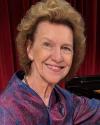
Celebrated pianist Robin McCabe has established herself as one of America’s most communicative and persuasive artists. McCabe’s involvement and musical sensibilities have delighted audiences across the United States, Europe, Canada and in nine concert tours of the Far East. The United States Department of State sponsored her two South American tours, which were triumphs both artistically and diplomatically.
As noted by the New York Times, “What Ms. McCabe has that raises her playing to such a special level is a strong lyric instinct and confidence in its ability to reach and touch the listener.” The Tokyo Press declared her a “pianistic powerhouse,” and a reviewer in Prague declared, “Her musicianship is a magnet for the listener.” Richard Dyer, the eminent critic of the Boston Globe: ‘Her brilliant, natural piano playing shows as much independence of mind as of fingers.”
Her recordings have received universal acclaim. Her debut album for Vanguard Records featured the premiere recording of Guido Agosti transcription of Stravinsky’s Firebird Suite. Critics praised it as “mightily impressive.” Stereo Review described her disc of Bartok as “all that we have come to expect from this artist, a first-rate performance!” She was commissioned to record four albums for the award-winning company Grammofon AB BIS in Stockholm, which remain distributed internationally, including the CD “Robin McCabe Plays Liszt,” (AB BIS No. 185).
McCabe earned her bachelor of music degree summa cum laude at the University of Washington School of Music, where she studied with Béla Siki, and her master’s and doctorate degrees at the Juilliard School of Music, where she studied with Rudolf Firkusny. She joined the Juilliard faculty in 1978 then returned to the UW in 1987 to accept a position on the piano faculty. In 1994 McCabe was appointed Director of the School of Music, a position she held until 2009. McCabe holds a Michiko Morita Miyamoto Professorship in Piano at the School of Music and has previously held a Ruth Sutton Waters Professorship and a Donald Petersen Professorship in the School of Music.
McCabe is a dedicated arts ambassador and advocate for arts audience development, frequently addressing arts organizations across the country. With colleague Craig Sheppard, she has launched the highly successful Seattle Piano Institute, an intense summer immersion experience for gifted and aspiring classical pianists.
The winner of numerous prizes and awards, including the International Concert Artists Guild Competition and a Rockefeller Foundation grant, McCabe was the subject of a lengthy New Yorker magazine profile, “Pianist’s Progress,” later expanded into a book of the same title.
In 1995 McCabe presented the annual faculty lecture — a concert with commentary — at the University of Washington. She is the first professor of music in the history of the University to be awarded this lectureship. Seattle magazine selected McCabe as one of 17 current and past University of Washington professors who have had an impact on life in the Pacific Northwest. In 2005, to celebrate its 100th year as an institution, The Juilliard School selected McCabe as one of 100 alumni from 20,000 currently living to be profiled in its centenary publication recognizing distinction and accomplishments in the international world of music, dance, and theater. Today she is a highly- sought teacher at the University of Washington, with students from around the world seeking admission to her studio.
McCabe performs regularly throughout the United States, and has made several tours of South Korea, Japan and China. In 2022 she has been appointed Artistic Advisor to the Beijing Royal School, an elite private K-12 institution which is evolving an international Arts curriculum She appears often as an invited jurist for international piano competitions, most recently in New Orleans, San Antonio, and Vancouver, Canada. In 2016 she served on the jury of the Gina Bachauer International Piano Competition. In March of 2022 she served on the jury for the Hilton Head International Piano Competition.

Flutist Donna Shin has been praised for her beautifully-spun phrases, seductive sound, sterling technique, and charismatic exchanges with the audience. Described as “dazzling” by the Boston Globe, Shin has built an enviable reputation as a versatile performer of solo, chamber, orchestra, jazz and ancient Asian repertoire. Performing in concert halls throughout the Americas, Europe and Asia, she is admired for her adventurous programming and expressive flair.
Devoted to the role of artist-teacher, she is the flute professor at the University of Washington School of Music after holding faculty posts at the University of South Carolina School of Music and Oklahoma State University. She frequently appears as artist-performer and master class clinician at universities and flute clubs throughout the world, modeling the artist-teacher path for young flutists.
Shin has been featured in solo performances with the North Korean National Symphony Orchestra, People’s Liberation Army Band of China, Seattle Symphony Orchestra, Eastman Philharmonia, Sewanee Summer Music Festival, University of Washington Symphony Orchestra, New England Conservatory Wind Ensemble, University of South Carolina Wind Ensemble, Oklahoma State University Wind Ensemble, and University of Washington Wind Ensemble.
Shin performed for two seasons as principal flute with the Heidelberg Schlossfestspiele Orchester in Germany. In the Boston area, she performed with the Boston Philharmonic Orchestra, the New Bedford Symphony, and the Isabella Stewart Gardner Chamber Orchestras. She has also performed with the Seattle Symphony, Northwest Sinfonietta, South Carolina Philharmonic, Tulsa Symphony Orchestra, New World Symphony, Tulsa Signature Symphony, Lake Placid Sinfonietta, Tanglewood Music Center, National Repertory Orchestra, Aspen Music Festival, National Orchestral Institute, and Norfolk Chamber Music Festival.
Shin has won prizes in competitions held by the National Flute Association, April Spring Friendship Arts Festival in North Korea, Performers of Connecticut, James Pappoutsakis Society, and Seattle Flute Society, to name a few. As a founding member of Paragon Winds woodwind quintet, she was awarded fellowships from the New England Conservatory and Yale University’s Norfolk Chamber Music Festival, and won the Grand Prize at the Coleman National Chamber Ensemble Competition in Pasadena, California. In concert, Shin has collaborated with esteemed artists such as Yo-Yo Ma, Andrea Bocelli, and Pulitzer Prize winners George Crumb and John Harbison.
Committed to developing young artists and reaching out to audiences, Shin has introduced new music programs to a variety of communities, ranging from rural Oklahoma to communist North Korea to castle communities in northern Italy. Recent international concert tours include: Brazil, China, Japan, North and South Korea, and Uzbekistan.
Shin earned degrees with the highest honors from the Interlochen Arts Academy, Eastman School of Music and the New England Conservatory, including the esteemed Performer’s Certificate at the Eastman School. As instructor of chamber music and flute at the University of Rochester and the Eastman School of Music, she was awarded the “Eastman School of Music Excellence in Teaching” prize. During her doctoral studies at Eastman, she became the first woodwind player in the school’s history to be nominated for the highly coveted Artist's Certificate.
During the summer months, Shin performs as artist-teacher at the Sewanee Summer Festival in Tennessee, ARIA International Summer Academy in Massachusetts, and Snowater Flute Festival in Washington. Her prior summer activities have included leadership of study abroad performance courses in northern Italy and Young Artist Competition Coordinator for the National Flute Association.
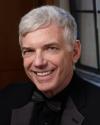
University of Washington Professor Emeritus Timothy Salzman served as Professor of Music/Director of Concert Bands and conductor of the UW Wind Ensemble from 1987 to 2025. When he was appointed to the position there were 11 students enrolled in one UW wind band – in his final year there were 335 enrolled in five bands. Former graduate wind conducting students of Professor Salzman have obtained positions at 74 universities and colleges throughout the United States and include past presidents of the American Bandmasters Association and the College Band Directors National Association as well as Jiannan Cheng, Assistant Conductor of the Baltimore Symphony Orchestra. During his tenure at the UW the band program was involved in commissioning and, in certain cases, the premiering of 38 new works for wind ensemble and undertook many concert tours including seven to Asia. From 1978 to 1983 he was band director in the Herscher, Illinois, public school system where the band program received numerous state, regional and national awards in solo/ensemble, concert and marching band competition. Immediately prior to his UW appointment he served for four years as Director of Bands at Montana State University where he founded the MSU Wind Ensemble and ‘Spirit of the West’ Marching Band. Professor Salzman holds degrees from Wheaton (IL) College, and Northern Illinois University, and studied privately with world-renown wind instrument pedagogue Arnold Jacobs, former tubist of the Chicago Symphony Orchestra. He has numerous publications for bands with the C. L. Barnhouse, Arranger's Publications, Columbia Pictures, Hal Leonard Publishing and Nihon Pals publishing companies, and has served on the staff of new music reviews for The Instrumentalist magazine. Professor Salzman has been a conductor, adjudicator, arranger, or consultant for bands throughout the United States and in Canada, England, France, Russia, South Korea, Indonesia, Thailand, Singapore, the Philippines, China, and Japan, a country he has visited twenty-one times. He has traveled to China twelve times where he served as visiting professor at the China Conservatory, given master classes for numerous wind bands, and conducted several ensembles including the Shanghai Wind Orchestra, the People's Liberation Army Band, the Beijing Wind Orchestra, The China Conservatory Wind Ensemble and the Tsinghua University Band in multiple concerts. He also served on three occasions as an adjudicator for the Singapore Youth Festival National Concert Band Championships. He has conducted several of the major military bands in the United States including a 2019 world premiere with 'The President's Own' United States Marine Band. He was compiling editor and co-author (with several current and former UW graduate students) of A Composer's Insight: Thoughts, Analysis and Commentary on Contemporary Masterpieces for Wind Band, a five-volume series of books on contemporary wind band composers. The forwards to each volume were written by five Pulitzer Prize-winning composers. He was also a contributing author to a recent book (2022) about his former teacher entitled Arnold Jacobs: His Artistic and Pedagogical Legacies in the 21st Century. Professor Salzman is an elected member of the American Bandmasters Association and is a past president of the Northwest Division of the College Band Directors National Association. He is an elected member of the Drum Corps International Hall of Fame as well as the Santa Clara (CA) Vanguard and Cavaliers (IL) Drum and Bugle Corps Hall(s) of Fame for his work as an arranger and brass instructor. In 2009 Nihon Pals, a music education resource company based in Osaka, Japan, released a set of instructional DVDs regarding ensemble musicality featuring the UW Wind Ensemble. The University of Washington hosted the 2011 National Conference of the College Band Directors National Association.

As a conductor, trumpet player, and educator, Shaun Day enjoys sharing his passion by working with a variety of music ensembles and creating a positive community through music. Shaun is completing his DMA in Instrumental Conducting at the University of Washington where he is the director and conductor for the UW Symphonic Band, and the associate conductor for the UW Wind Ensemble. He is also serving as the Conductor and Artistic Director for the Mukilteo Community Orchestra and enjoys connecting with local music educators in the Seattle area. Shaun continues to work as an ensemble clinician, guest conductor, and as a presenter at music education conferences, including the Washington Music Educators Association (WMEA) State Conference.
Originally from Cincinnati, Ohio, Shaun earned his BM in Music Education with a concentration in trumpet performance, and his MM in Conducting from the University of Cincinnati, College-Conservatory of Music (CCM). During that time, he was the manager of the CCM Wind Symphony, CCM Brass Choir, the University Commencement Band, and a Graduate Assistant of the University of Cincinnati Bearcat Band. Shaun also served as the Associate Conductor of the University of Cincinnati Symphony Orchestra and Guest Conductor for the Fillmore Philharmonic Brass (OH).
Before completing his MM, Shaun was the assistant band director at Turpin High School in Cincinnati. His duties included directing the high school concert bands, directing the high school jazz program, the musical theatre pit orchestra, assisting and directing the high school marching band program, and directing the 5th-12th concert bands. His professional affiliations include the College Band Directors National Association (CBDNA), Washington Music Educators Association (WMEA), and the Ohio Music Education Association (OMEA) where he served as the District XIV Secretary and Treasurer from 2016-2018.
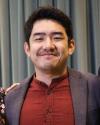
M.M Wind Conducting, Peabody Institute of the Johns Hopkins University, 2020
M.Ed. Education, Concordia University Irvine, 2018
B.A. Anthropology, University of California Los Angeles, 2014
Recent works include producing and music directing his original musical “Yappie: The Musical” and its concept album premiere, music directing chamber operas exploring the relationship between growth and suffering in Baltimore’s contemporary opera scene, and presenting research on instrument pedagogy, choice, and personality at Ohio State University. At the Peabody Institute of the Johns Hopkins University, Roger worked as a conductor, performer, teaching assistant and faculty substitute. Through summer conducting workshops, Roger has worked with conductors including Dr. Travis Cross, Dr. Mallory Thompson, Professor Charles Peltz, Dr. Cynthia Johnston Turner, Dr. Mark Scatterday, Professor Kevin McKeown and Dr. Mitchell Fennell. Drawing from his own varied background studying anthropology at the University of California, Los Angeles, and Wind Conducting at Peabody Institute of the Johns Hopkins University, Roger seeks to combine a high standard of musical performance with a rigorous academic approach, always seeking to explore and present music in a new and different light.
Outside of music, Roger works with the mental health foundation Healthy Gamer by providing peer-delivered recovery support services as a group and personal coach. In his offtime, Roger enjoys being a mediocre cook, catching up on popular shows from half a decade ago, and biking. Roger is extremely excited to join the Husky family at UW, and get to know the PNW at large - Go Dawgs!
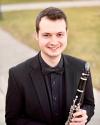
David Stewart is a Graduate Assistant at the University of Washington, where he is pursuing a Doctor of Musical Arts (D.M.A.) in conducting. David holds degrees in music performance and music education from Central Washington University and received a Master of Music from the University of Montana. A native of the Pacific Northwest, he attended Mercer Island High School and spent his weekends playing in the Seattle Youth Symphony Orchestra. His early experiences working with influential music educators shaped his ambition to become a band director himself. After realizing this dream and teaching at Graham-Kapowsin High School for four years, he decided to further his education and focus on conducting. As a performer, David has achieved notable success. He won his university's concerto competition as a freshman and received the National Band Association's Outstanding Musician Award. In 2018, he was featured as a soloist at the Western/Northwestern CBDNA Conference, where he delivered a standing-ovation performance of Scott McAllister's "Black Dog" for solo clarinet and wind ensemble.
Most evenings and Saturdays, you'll find David working with the Husky Marching Band, where he not only conducts but also plays a role in crafting the band’s dynamic game-day performances. He embraces the vibrant culture, community, and traditions of the Husky Marching Band and works to create memorable experiences for both participants and audiences. Beyond his musical pursuits, David enjoys mountain biking, rock climbing, and chess. He is also a trained mindfulness teacher, reflecting his well-rounded approach to music and life.
